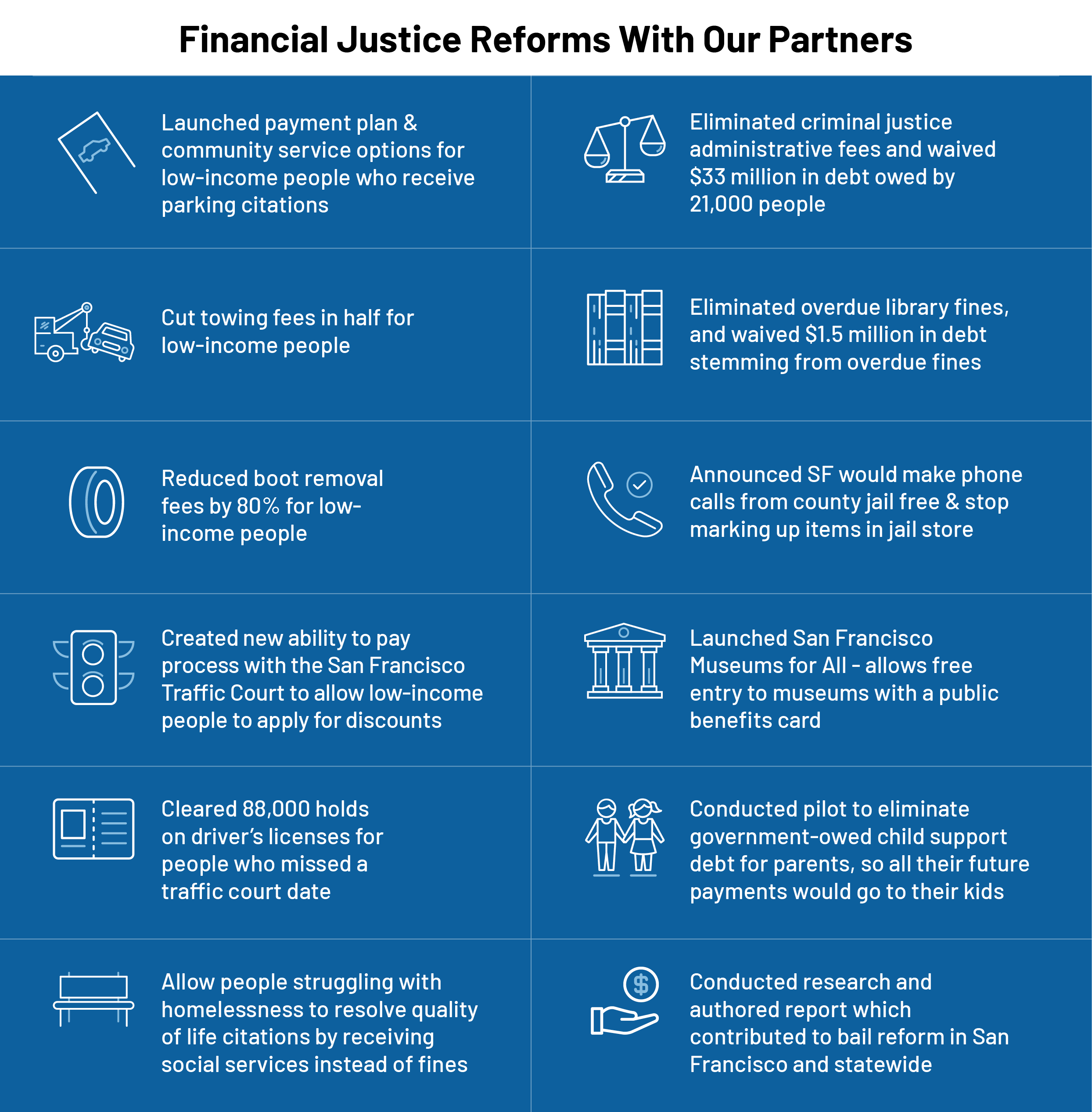Since the launch of The Financial Justice Project in 2016, we have achieved significant reforms, learned a lot, and encountered challenges we did not anticipate. Today, we’re excited to release a new report to share our experiences and celebrate our reforms to local fines and fees in San Francisco. We hope that this report will be useful for other people who want to advance reforms in their localities. Read the report here.
In the last three and a half years, we have worked with community organizations, government departments, and the courts to propose and implement reforms to fines, fees, and financial penalties. Working together, we have lifted tens of millions of dollars in debt off thousands of San Franciscans. Our focus has been on fines, fees, and financial penalties that are high pain for people—causing financial distress—and low gain for government, where the collection rates are very low. We have made fines more fair and gotten rid of fees that don’t make sense. We have eliminated or created low-income discounts for dozens of fines and fees. The reforms remove barriers for people that prevent them from succeeding. The solutions are doable for government to implement are starting to spread to other places. Below is a snapshot of our reforms.

In the face of the COVID-19 health and economic crisis, this work is more important than ever. We know that the City and County of San Francisco, like many other cities and counties across the country, will face budget deficits. But so will low-income families and communities of color. From our three years of experience advancing reforms through The Financial Justice Project, we know that we can hold people accountable without putting them in financial distress. And we can balance our budgets without placing them on the backs of the least fortunate. We—and many others—are finding common sense solutions that work better for people and government.
As we look ahead, we are excited to continue to create long-term strategies to address the disproportionate impact of fines and fees. We will continue to work with our partners to embed and communicate reforms, find more just and sustainable sources of revenue, and spread reforms to other cities and states.
